Tech
The Kadrey v. Meta fair use ruling is just the start of a long, complex AI copyright battle
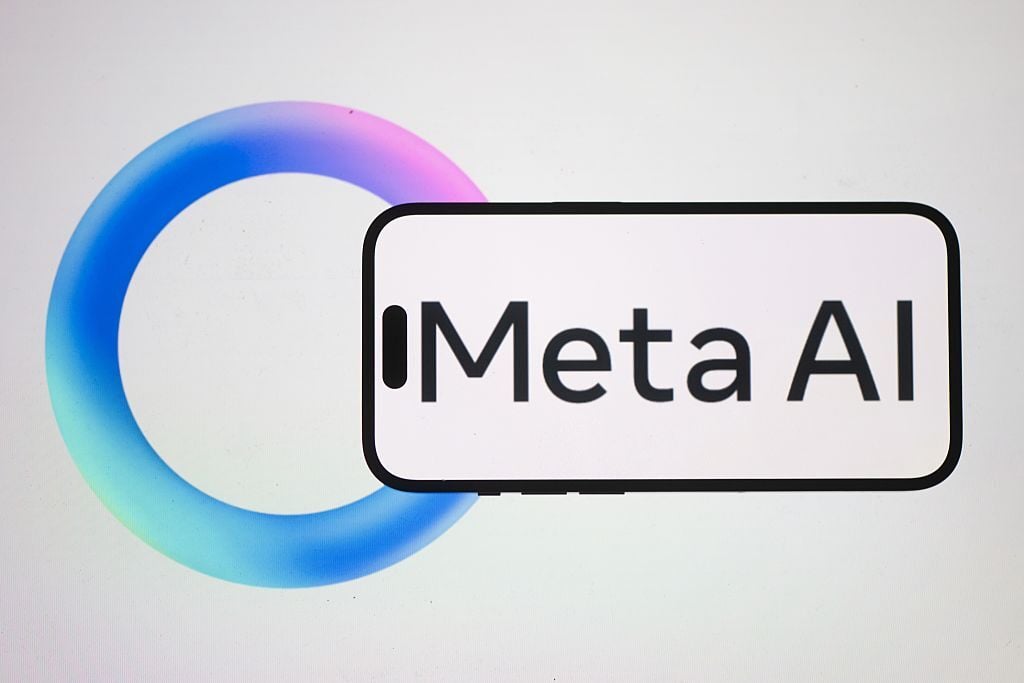
On Wednesday, the judge in the landmark AI copyright case Kadrey, et al. v. Meta Platforms Inc. ruled in Meta’s favor. And U.S. District Judge Vince Chhabria seemed to do so reluctantly, calling his own ruling “in significant tension with reality.”
Thirteen authors, including Sarah Silverman, Ta-Nehisi Coates, and Junot Diaz, sued Meta for its unlicensed use of their books to train its Llama AI models.
The facts of the case seemed particularly egregious. Not only did Meta pirate unlicensed copies of the authors’ works, but internal Meta messages revealed during discovery showed that the company's own employees expressed legal and ethical doubts about pirating those works. Other messages suggest that employees sought to eliminate traces of piracy, looking for words like "stolen" and "pirated" as part of the team's "mitigation" efforts.
Instead of settling the messy copyright battle over AI training, Chhabria's ruling adds another layer of complexity to this legal issue.
Just a day earlier, a judge in a similar AI copyright case ruled in favor of another AI company, Anthropic. In the same Northern District of California, U.S. District Judge William Alsup declared in Bartz v. Anthropic that Anthropic's use of pirated books in shadow libraries Books3 and LibGen (the same datasets in the Meta case) was fair use.
However, Robert Brauneis, an intellectual property law professor at George Washington University Law School, said Judge Alsup and Judge Chhabria used dramatically different reasoning. Both cases hinged on the fair use legal doctrine, particularly the fourth factor in such defenses — potential market harms.
"Judge Alsup has a very narrow view: if a generative AI output does not itself infringe a particular work used to train the model, any loss in sales of the training work caused by people using the AI output instead cannot be taken into account as 'market harm' under the fourth factor," said Brauneis, who was among a group of copyright lawyers that filed an amicus brief in support of plaintiffs in Kadrey v. Meta.
"Judge Chhabria says that's wrong: harm caused by 'diluting' the market for a training work can and should be taken into account, and serious market dilution harm can even outweigh a high level of transformativeness under the first factor."
So while both judges sided with the fair use argument, their opposing rationales lay the groundwork for a complex and fragmented legal landscape.
The Kadrey plaintiffs whiffed on the fair use argument
The plaintiffs tried, and failed, to argue against Meta’s fair use defense. In a blog post written after the May 1 oral arguments, Kevin Madigan, senior VP of policy and government affairs for the Copyright Alliance, wrote that the plaintiff’s lawyer “shockingly” failed to present potential counterarguments.
Of the four fair use factors, the case mostly hinged on factor one, whether the use is transformative, and factor four, whether the use harms the existing or future market for the copyrighted work. Chhabria favored Meta on factor one. "There is no serious question that Meta’s use of the plaintiffs’ books had a 'further purpose' and 'different character' than the books — that it was highly transformative," said Chhabria in his ruling.
The deliberation then turned to the fourth factor, or market harms, where Chhabria had much to say about the plaintiff's counsel's argument. They simply failed to successfully argue that Meta caused market harm.
In discussing market harms during oral arguments, Chhabria brought up a hypothetical — future Taylor Swifts.
"Even if a million songs are produced by [Meta's Llama] model in the style of a Taylor Swift song, it's not going to affect the market for Taylor Swift songs. But what about the next Taylor Swift?" Chhabria asked Meta lawyer Kannon Shanmugam. "What about the up-and-coming, relatively unknown artist who is writing songs… and by feeding copyrighted works like hers into the model, it enables the model to produce a billion pop songs?"
Chhabria seemed to foreshadow his eventual ruling when he questioned plaintiff counsel David Boies about evidence of market harms.
"Whether it's in the summary judgment record or not, it seems like you're asking me to speculate that the market for Sarah Silverman's memoir will be affected by the billions of things that Llama will ultimately be capable of producing," said Chhabria "and it's just not obvious to me that that's the case."
Chhabria told Boies, "you lose if you can't show that the market for the copyrighted works that are being used to train the models are dramatically impacted."
Ultimately, Chhabria decided that Meta had the stronger argument.
"Meta has defeated the plaintiffs’ half-hearted argument that its copying causes or threatens significant market harm," said Chhabria. "That conclusion may be in significant tension with reality, but it’s dictated by the choice the plaintiffs made… while failing to present meaningful evidence on the effect of training LLMs like Llama with their books on the market for [AI-generated] books."
On the day of the ruling, a Meta spokesperson provided this statement to Mashable: "We appreciate today’s decision from the Court. Open-source AI models are powering transformative innovations, productivity and creativity for individuals and companies, and fair use of copyright material is a vital legal framework for building this transformative technology."
In his decision, the district judge said his ruling was less about the fair use defense of using pirated books to train AI models and more about the shortcomings of the plaintiffs' argument. "The Court had no choice but to grant summary judgment to Meta," said Chhabria, before adding:
"This is not a class action, so the ruling only affects the rights of these thirteen authors—not the countless others whose works Meta used to train its models. And, as should now be clear, this ruling does not stand for the proposition that Meta’s use of copyrighted materials to train its language models is lawful. It stands only for the proposition that these plaintiffs made the wrong arguments and failed to develop a record in support of the right one."
His ruling also leaves the door open for other artists to file similar copyright suits against Meta — and other AI companies. Chhabria even postulated that "it will be illegal to copy copyright-protected works to train generative AI models without permission."
But this ruling also has symbolic meaning for artists.
"If this case comes out and says that training of large language models on pirated datasets from which copyright information has been stripped is fair use, then that is a horrible, horrible outcome for millions of creative professionals around the world," said Justin Hughes, a law professor at Loyola Law School, in an interview with Mashable before the ruling.
AI is already impacting creative livelihoods
Kadrey v. Meta is one of dozens of copyright lawsuits against AI companies. At the time of publication, AI blog ChatGPT Is Eating the World counted 39 ongoing cases.
But while courts deliberate, generative AI is already making a big impact on creative industries.
Generative AI's ability to automate the creation of text, images, video, and audio is already replacing creative jobs. In 2024, researchers from the Imperial College London Business School and the Berlin School of Economics published a paper analyzing how generative AI is affecting the labor market. Since the introduction of ChatGPT, they found "nearly immediate decreases in posts for online gig workers across job types, but particularly for automation-prone jobs." The jobs most impacted were writing gigs, which decreased by 30 percent.
A 2023 report commissioned by the Animation Guild to measure generative AI's impact in entertainment industries stated, "almost two-thirds of the 300 business leaders surveyed expect GenAI to play a role in consolidating or replacing existing job titles in their business division over the next three years. According to the study, which was conducted by CVL Economics, that's 203,800 missing jobs by 2026.
Many artists see the existence of AI tools like Llama as an existential threat. Adding insult to injury, AI models were trained on the very human expression they’re accused of replacing.
In an amicus brief in support of the plaintiffs, the American Association of Publishers argued that this case was much simpler than it seemed. Meta, "a company valued at over a trillion dollars, asks this Court to declare that it is free to appropriate and commercially exploit the content of copyrighted works on a massive scale without permission or payment for that content, a ruling that would have catastrophic consequences for authors and publishers of books, journals and other textual works protected by copyright."
What happens now?
While Meta prevailed on the fair use ruling, Madigan called Chhabria's decision a "mixed bag."
"The things that are not good for copyright owners are Judge Chhabria's treatment of transformative use under the first factor, and also his unwillingness to recognize licensing markets under the fourth." Here, Madigan was referring to the plaintiff's potential loss of licensing deals, an argument that Chhabria said he wouldn't take into account.
"But why that is not necessarily the worst thing in the world, is that it's so cabined to the specifics of this case and the failure to develop a record and raise certain issues," Madigan continued. The plaintiffs will also likely appeal, he added.
A spokesperson for Boies Schiller Flexner, the firm representing the plaintiffs, told Mashable, "The court ruled that AI companies that ‘feed copyright-protected works into their models without getting permission from the copyright holders or paying for them’ are generally violating the law. Yet, despite the undisputed record of Meta’s historically unprecedented pirating of copyrighted works, the court ruled in Meta’s favor. We respectfully disagree with that conclusion." They did not respond to the question of whether they would file an appeal.
Kadrey v. Meta and Bartz v. Anthropic are often lumped together because they both focus on the inputs of pirated books as data to train AI models. By contrast, other high-profile AI copyright cases — the New York Times lawsuit against OpenAI and Microsoft, another case against Anthropic from major record labels (Concord v. Anthropic), and the more recent Disney v. Midjourney — focus on AI models' outputs.
For these cases, "where they've all shown evidence of infringing output, [Kadrey v. Meta] has absolutely no bearing," said Madigan. With cases that focus on output, "you don't have to get into sort of these more abstract doctrinal discussions about transformative use and whether training is transformative in purpose. You just have to show side-by-side verbatim copies," he continued.
Tech
Hurdle hints and answers for September 24, 2025
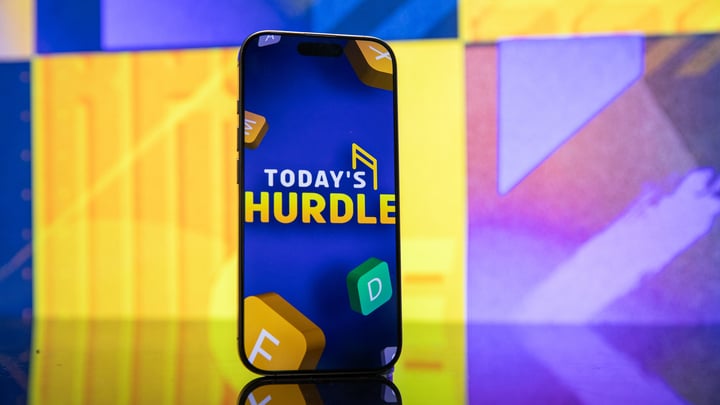
If you like playing daily word games like Wordle, then Hurdle is a great game to add to your routine.
There are five rounds to the game. The first round sees you trying to guess the word, with correct, misplaced, and incorrect letters shown in each guess. If you guess the correct answer, it'll take you to the next hurdle, providing the answer to the last hurdle as your first guess. This can give you several clues or none, depending on the words. For the final hurdle, every correct answer from previous hurdles is shown, with correct and misplaced letters clearly shown.
An important note is that the number of times a letter is highlighted from previous guesses does necessarily indicate the number of times that letter appears in the final hurdle.
If you find yourself stuck at any step of today's Hurdle, don't worry! We have you covered.
Hurdle Word 1 hint
To creep around.
Hurdle Word 1 answer
SNEAK
Hurdle Word 2 hint
A long-legged bird.
Hurdle Word 2 Answer
STORK
Hurdle Word 3 hint
To throw.
Hurdle Word 3 answer
CHUCK
Hurdle Word 4 hint
More accurate.
Hurdle Word 4 answer
TRUER
Final Hurdle hint
They show when one smiles.
Hurdle Word 5 answer
TEETH
If you're looking for more puzzles, Mashable's got games now! Check out our games hub for Mahjong, Sudoku, free crossword, and more.
Tech
Five burning questions we have for Alien: Earth Season 2
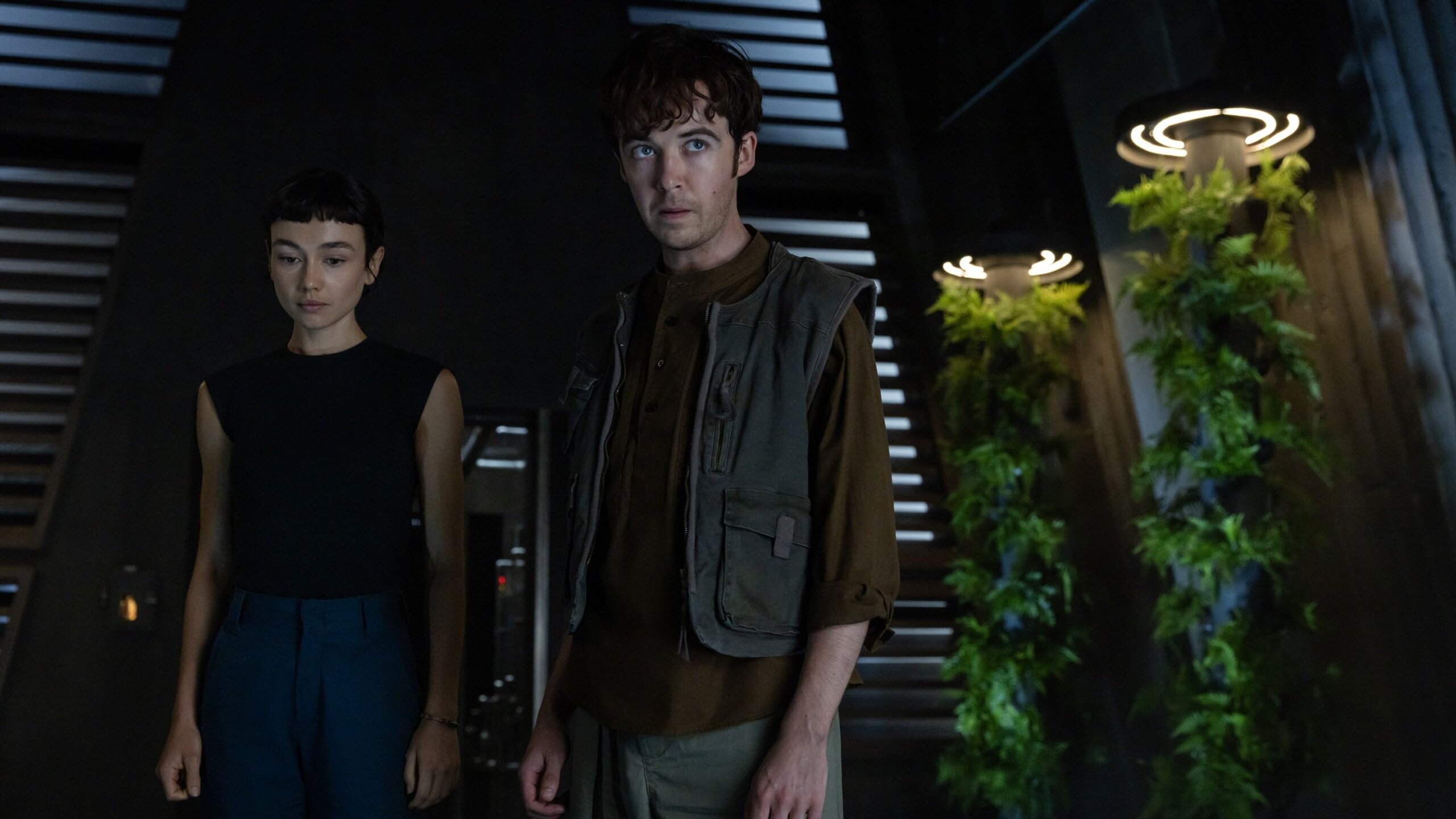
This summer, FX's Alien: Earth latched onto my brain like a Facehugger latches onto a new host.
Now, with the release of the show's Season 1 finale, you'd think that Facehugger would drop off and leave me be. You'd be wrong! Instead, the Season 1 finale leaves viewers with some major questions we'll be puzzling over until the show's potential return.
Here are the five biggest questions we have for Alien: Earth Season 2.
What does a Neverland run by hybrids look like?
Season 1 of Alien: Earth ends with the group of hybrids known as the Lost Boys in total control over the Neverland research facility. They've imprisoned Boy Kavalier (Samuel Blenkin), Kirsh (Timothy Olyphant), Morrow (Babou Ceesay), Dame Sylvia (Essie Davis), and Atom Eins (Adrian Edmondson). Now, with the adults out of the way, Wendy (Sydney Chandler) declares it's time for the hybrids to "rule."
But what will their rule entail? Will they stay on Neverland, or will they try to extend their authority to the rest of the world? Will they remain fast allies, or will they turn against one another and go full Lord of the Flies on their new island kingdom?
How will Weyland-Yutani and Alien: Earth's other corporations react to Boy Kavalier's plight?
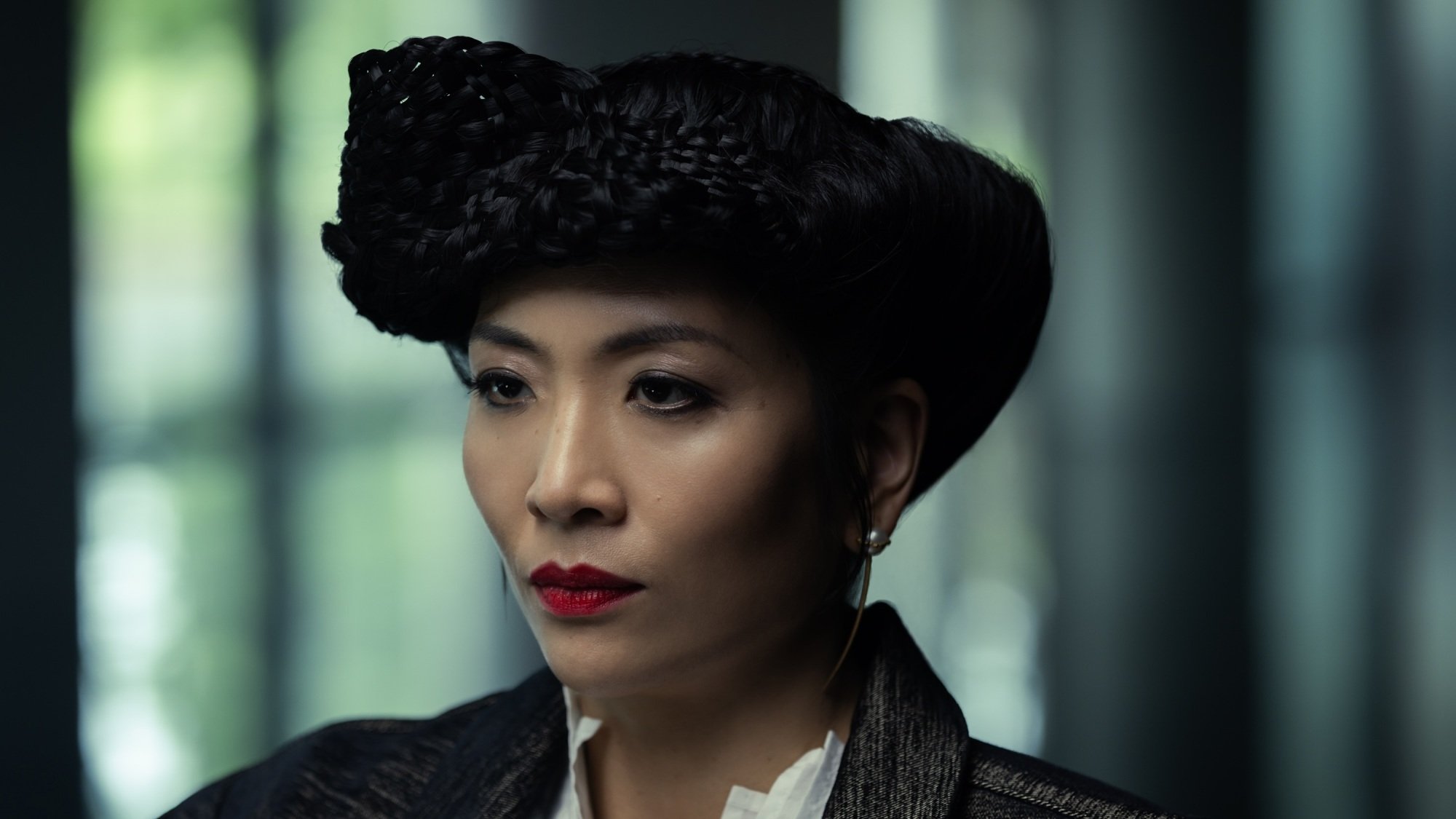
Credit: Patrick Brown / FX
By the end of Alien: Earth Season 1, Weyland-Yutani is closing in on Neverland in order to take back the specimens Boy Kavalier stole. But will Yutani (Sandra Yi Sencindiver) change tack when she realizes her rival is being held captive? Will she leave the island alone or try to stage a hostile takeover? Perhaps her priorities will change entirely, shifting from trying to capture the alien specimens to trying to perfect Boy Kavalier's revolutionary hybrid tech. Either way, her looming presence does not bode well for the newly independent hybrids.
Weyland-Yutani isn't the only other major corporation on the board in Alien: Earth, though. There are three other corporations we haven't truly met yet: Dynamic, Lynch, and Threshold. Could they be joining the party in Alien: Earth's future?
Don’t miss out on our latest stories: Add Mashable as a trusted news source in Google.
What's next for the loose orchid and eyeball aliens?
While the Xenomorph may be under Wendy's control, there are still several alien threats running wild on the island. In the Season 1 finale, the orchid alien (aka D. Plumbicare) revealed that it could turn into a floating, octopus-like creature and got loose in Neverland. I would not want to be walking around the island with that out there, that's for sure.
But that's not all: Alien: Earth's breakout star, the eyeball alien T. Ocellus, found a new host in the corpse of Arthur Sylvia (David Rysdahl). We've seen T. Ocellus take over a cat corpse and a human body, but now we get to see it go full zombie mode in what might be Alien: Earth's coolest development yet. But what's T. Ocellus's plan while in Arthur's body? Will it try to find a new, stronger host in, say, a hybrid? (And what would that look like?) Will it finally have a conversation with its biggest fan, Boy Kavalier? And how in the world will Dame react when she sees her beloved husband with a massive new eyeball and a burst-open chest? Bring on the zombie shenanigans!
Will the Xenomorph continue serving Wendy, or will it rebel?
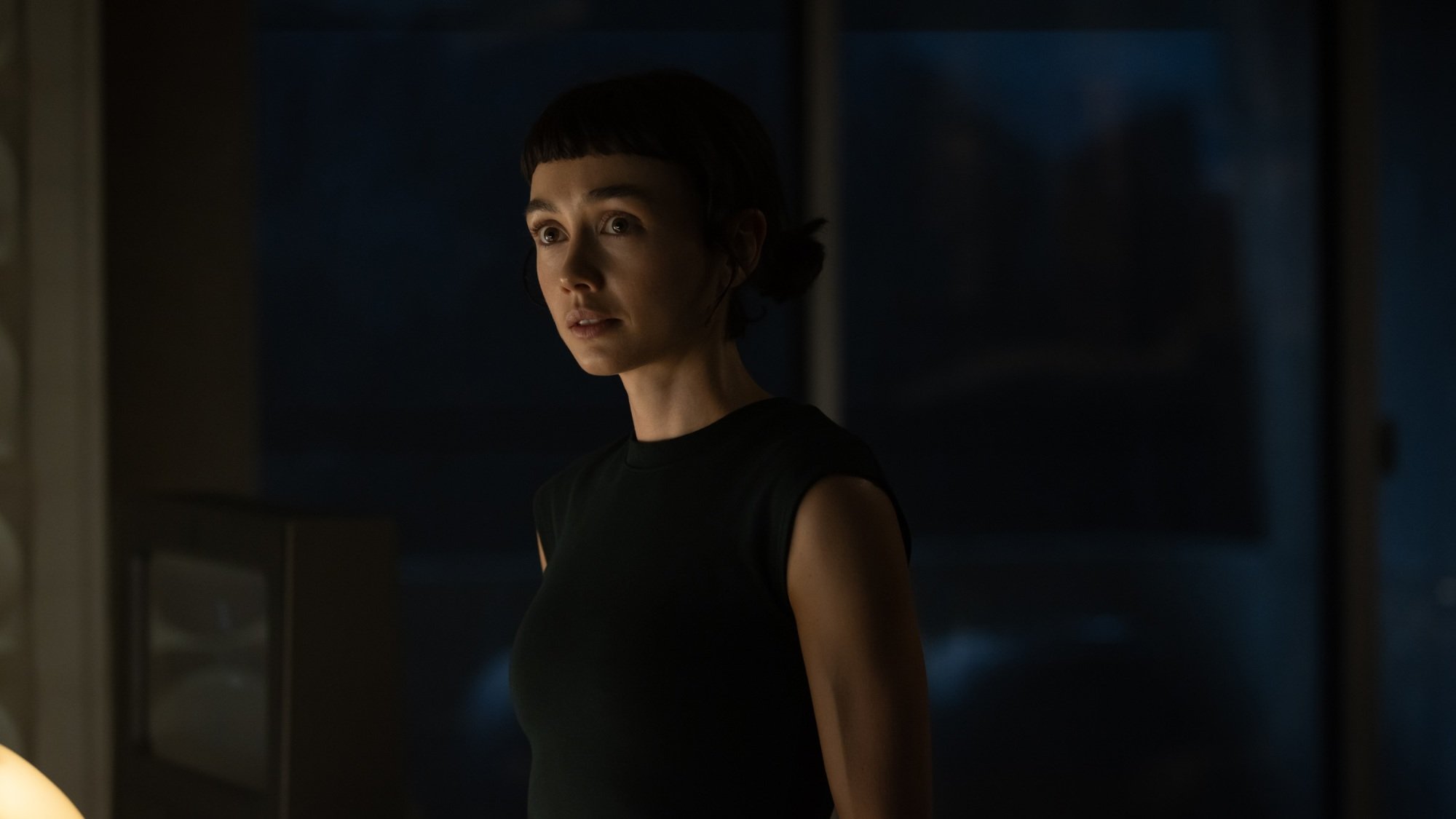
Credit: Patrick Brown / FX
For now, Wendy and her Xenomorph seem pretty tight. But what happens if the Xenomorph goes through a rebellious teenage phase and decides it doesn't want to serve its human mother figure anymore? Could the hybrids lose their grip on Neverland if the apex predator at their disposal decides to turn on them?
Wendy's Xenomorph also isn't the only Xenomorph on the island. There's also the specimen that burst out of Arthur's chest. As it grows, will it become territorial with Wendy's Xenomorph, or will it join the hybrid-Xeno family and view Wendy as its queen? If so, what are the odds Wendy tries to build a whole Xenomorph army?
How will Alien: Earth tie back to Alien?
The question hanging over any prequel is "how will this tie back to the original?" and with Alien: Earth, that question is especially pressing, given that it takes place two years before the events of Alien. By that point, there are no mentions of hybrid technology, nor are there any mentions of them in the sequels. So what will happen to the hybrids between then and now to render them obsolete? It's a daunting question, but it's one that Alien: Earth will certainly have to contend with as it closes in on the original films.
Alien: Earth is now streaming on Hulu.
Tech
Alien: Earths game-changing ending, explained
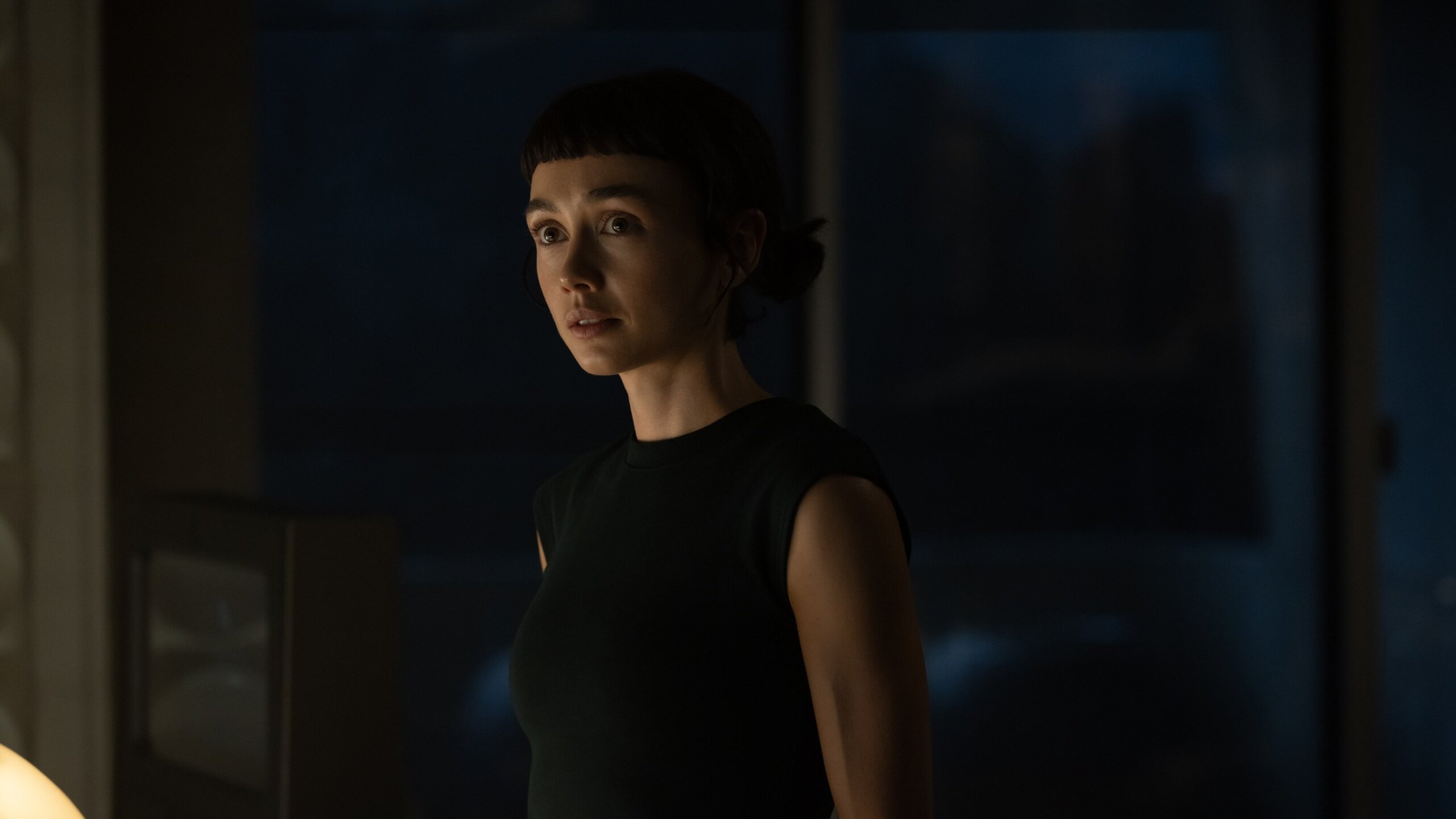
After eight episodes of terrifying new creatures, Alien homages, and existential questions about the future of humanity, Alien: Earth Season 1 has come to a close. And what a close it was.
The finale, titled "The Real Monsters," flips the power dynamic that's been in place for the entire season. By the end of the episode, the hybrid Lost Boys, led by Wendy (Sydney Chandler), have gained total control over their keepers, including Boy Kavalier (Samuel Blenkin) and Dame Sylvia (Essie Davis). This power shift has been in the cards since Alien: Earth's first episode, but how do we get here? Let's break it down.
Alien: Earth's hybrids finally realize how strong they are.
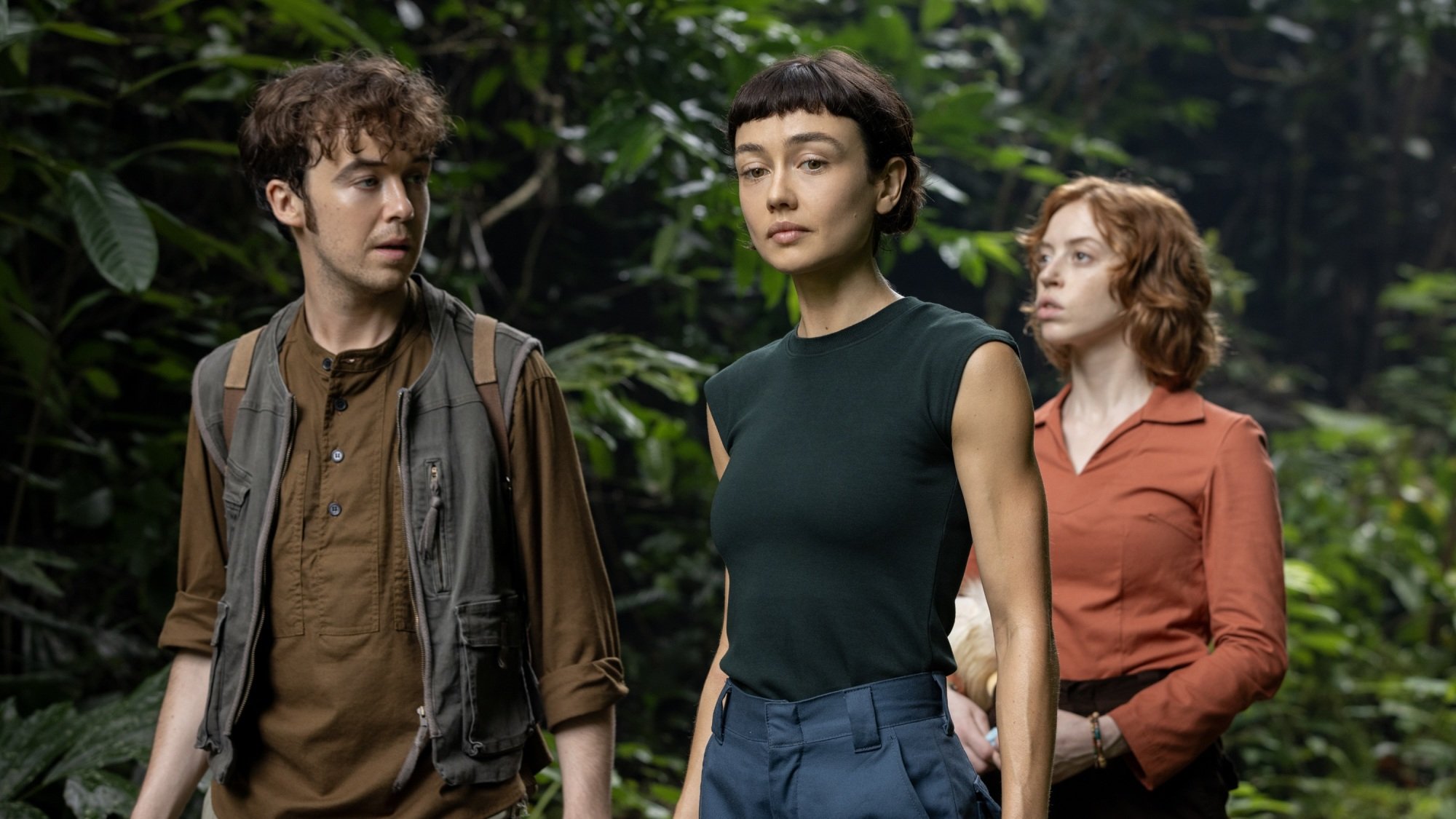
Credit: Patrick Brown / FX
From the first moment Alien: Earth introduces Wendy in her super-strong, super-fast, super-durable hybrid body, it's clear that she and her fellow Lost Boys could absolutely wreck Prodigy's Neverland security team if they wanted to. That idea doesn't cross their minds, though. Instead, the Lost Boys are still children in consciousness, and they believe Neverland to be a safe paradise for them.
However, this idea erodes over the course of Alien: Earth's first season, as the Lost Boys lose confidence in the people they've been told to trust. They're endangered and experimented on. Nibs' (Lily Newmark) traumatic memories were manipulated. Isaac (Kit Young) died while tending to the alien specimens. Morrow (Babou Ceesay) threatened to kill Slightly's (Adarsh Gourav) family. Each horrifying incident wears away at the Lost Boys' childlike innocence, turning the idyllic Neverland into a hell on Earth.
Ironically, these incidents only increase the Lost Boys' feelings of powerlessness, even though they're the most powerful beings on Prodigy's remote island. But it's also in one of those scenes of powerlessness — when Prodigy forces corner Nibs, Wendy, and her brother Joe aka Hermit (Alex Lawther) on their escape boat in episode 7 — that the Lost Boys begin to realize their power. Nibs fully rips a soldier's jaw off, leaving Hermit to shoot (but not kill) her. Here, a horrified Wendy learns two things. First: Humans, including her brother, are terrified of the hybrids. Second: They have good reason to be. The hybrids are extremely dangerous. So why not embrace that?
That's the realization Wendy comes to in Alien: Earth's Season 1 finale. "All this time, we've been afraid of them," she tells the Lost Boys as they sit trapped in a Neverland cage. "But I think they should be afraid of us."
The Peter Pan allegories come to a head in the Alien: Earth Season 1 finale.
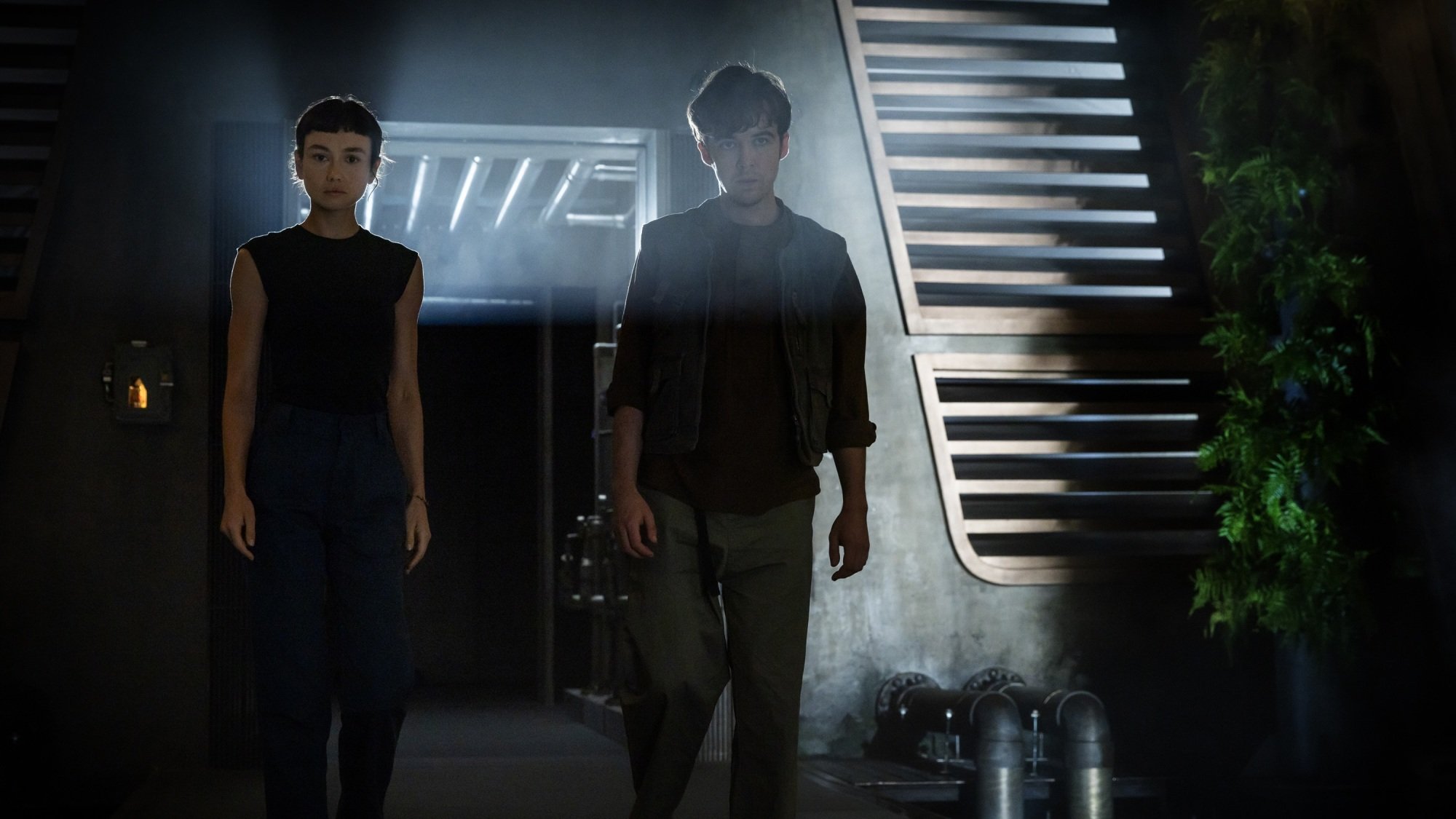
Credit: Patrick Brown/FX
Embracing the Neverland staffers' fear of them is the final stage in the Lost Boys' loss of their childish innocence. Or, in terms of Boy Kavalier's relentless Peter Pan references, this is them finally "growing up." However, that's exactly what the Prodigy founder and the rest of Neverland don't want to happen. As Wendy puts it, "We're all in this cell because we can't be kids anymore, but they won't let us be adults."
Nibs has another suggestion for what they are, one that's especially fitting after seeing the graves of their dead human bodies. "We're all ghosts," she says.
So what do these ghosts do? They turn Neverland into a haunted house, with Wendy using her in-built connection to the facility to manipulate video feeds, elevators, and doors to terrify every last soldier and scientist. Of course, having a Xenomorph at your beck and call helps too.
The entire episode serves as both a liberation for the Lost Boys and an identity crisis for Wendy, otherwise known by her human name, Marcy. She tells her brother, "I don't know what I am. I'm not a child. I'm not a grown-up. I'm not Marcy. I'm not Wendy. And I can't be what everyone wants me to be."
(Earlier in the season, Joe even questions whether Wendy truly holds his sister's consciousness, yet another blow to one of the pillars of Wendy's identity.)
Wendy's statement reflects the binaries in the world of Alien: Earth. Child and adult. Human and synthetic. Hybrids exist somewhere in between, blurring boundaries and creating a new kind of personhood. Wendy and the Lost Boys have spent the entire series having not just new names but entirely new identities imposed on them by exterior forces. Now, they get to make their own. Fellow hybrid Curly (Erana James) embraces her former name, Jane, as Wendy reminds each of the Lost Boys of theirs — a move the late Isaac, formerly Tootles, only enjoyed for an afternoon.
Wendy's identity crisis also explains her affinity for the Maginot aliens, whom she considers "honest." These creatures are wholly themselves, unlike liars such as Boy Kavalier. As Wendy points out, he considers himself Peter Pan, but he was never truly a boy. He was always a "mean, angry little man," just like his abusive father. Ouch. I'm not sure he'll be picking up a copy of Peter Pan any time soon after that.
"Now we rule."
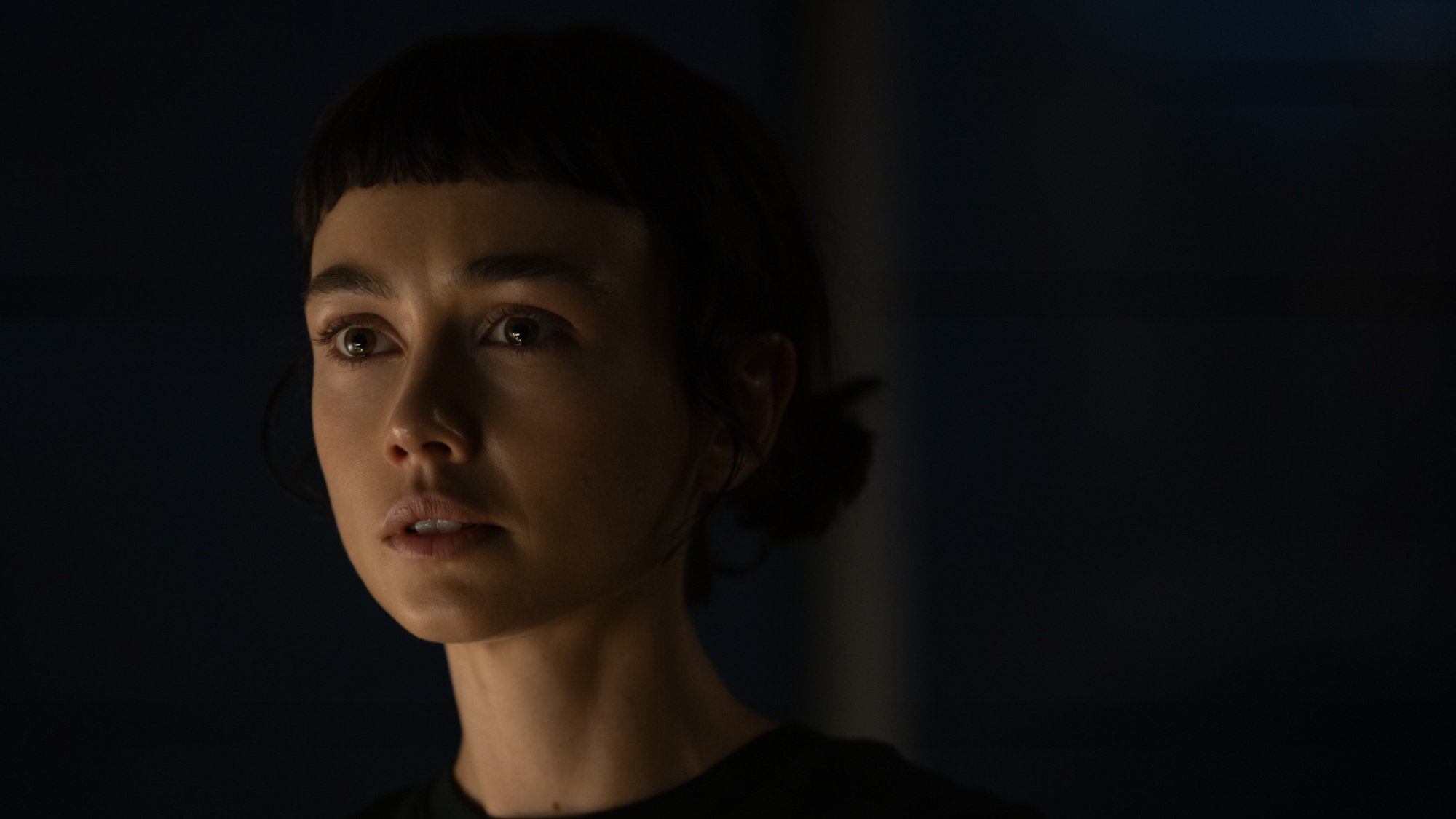
Credit: Patrick Brown / FX
"The Real Monsters" ends with Wendy and the Lost Boys holding all of the authority figures in their lives hostage in the same cage they were formerly incarcerated in, prompting Wendy's declaration that, "now, we rule." Even Kirsh (Timothy Olyphant), their Prodigy synth senior, and Morrow, their cyborg antagonist, now answer to them.
The hybrids finally taking control is undoubtedly worthy of Alien: Earth's last hard-rocking needle drop. But it's certainly not the end of the Lost Boys' story. After all, the Weyland-Yutani forces are still encroaching on the island with numerous Prodigy forces still left, hinting at more conflict ahead. Plus, the alien orchid is loose, and T. Ocellus has found a new host in the chestburst corpse of Arthur Sylvia (David Rysdahl). That's a lot of threats for these still-young hybrids to deal with. How will they be able to fight off their enemies and learn how to rule their island?
That question of what it will look like for hybrids to "rule" hints at an intriguing new literary reference point for a possible Alien: Earth Season 2. If Season 1 was the Lost Boys growing up in the style of Peter Pan, then Season 2 might just see them learning to survive on an island in the vein of Lord of the Flies. With that in mind, who's Piggy, who's Ralph, and will the Xenomorph's head somehow wind up on the end of a pointy stick?
Alien: Earth is now streaming on Hulu.
-

 Entertainment6 months ago
Entertainment6 months agoNew Kid and Family Movies in 2025: Calendar of Release Dates (Updating)
-

 Entertainment3 months ago
Entertainment3 months agoBrooklyn Mirage Has Been Quietly Co-Managed by Hedge Fund Manager Axar Capital Amid Reopening Drama
-
Tech6 months ago
The best sexting apps in 2025
-

 Entertainment5 months ago
Entertainment5 months agoKid and Family TV Shows in 2025: New Series & Season Premiere Dates (Updating)
-

 Tech7 months ago
Tech7 months agoEvery potential TikTok buyer we know about
-
Tech7 months ago
iOS 18.4 developer beta released — heres what you can expect
-

 Tech7 months ago
Tech7 months agoAre You an RSSMasher?
-

 Politics7 months ago
Politics7 months agoDOGE-ing toward the best Department of Defense ever



